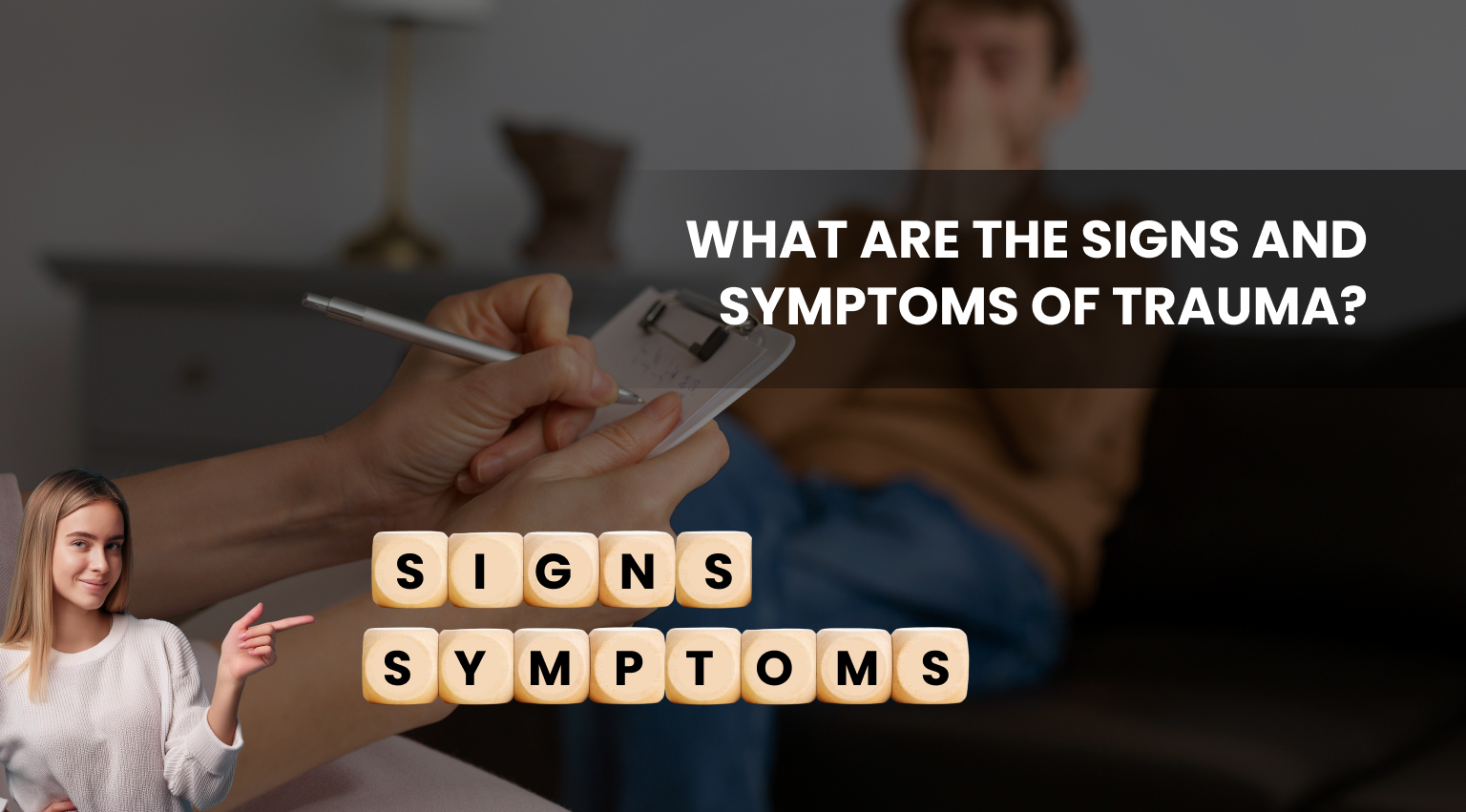Signs and Symptoms of Trauma?

Feelings of fear, sadness, anger, and grief are common after a traumatic event.
This is a part of how humans naturally react to danger.
Many people suffer from trauma, yet not everyone is aware that they have been impacted by it. It may follow a significant incident, such as an accident or loss, or it may result from persistent circumstances, such as emotional abuse or neglect as a child. Trauma can occasionally lurk in the background of our lives and manifest in ways we are not entirely aware of. Understanding the warning signs and symptoms of trauma in Atlanta is the first step toward recovery.
There are compassionate professionals in the Atlanta region who can assist if you believe trauma is having an impact on your life. We at Restore Tentherapy in Atlanta offer kind and efficient trauma treatment to help you regain your sense of security, strength, and support.
What Is Trauma?
Trauma is the response of the body and mind to an extremely upsetting or overwhelming event. It could be a string of recurring events, like growing up in a home where there was emotional abuse, or it could be a single event, like an assault or auto accident. Everybody experiences trauma differently; also different signs and symptoms of trauma in Atlanta and our reactions to it are highly individual.
Some people bounce back from stressful events with no lasting consequences. It’s perfectly OK for others to find it more difficult to proceed. Trauma therapy may be useful in this situation.
Common Signs and Symptoms of Trauma
It’s not always easy to understand trauma, particularly when signs and symptoms of trauma appear gradually or discreetly. Here are some typical psychological, behavioral, physical, and emotional indicators that trauma may be having an impact on your life.
1. Symptoms of Emotion
- Mood swings: Feeling happy one moment, then angry or depressed the next.
- A persistent feeling of dread, uneasiness, or worry is called anxiety or panic.
- Depression: Experiencing days or weeks of numbness, sadness, or hopelessness.
- Being easily agitated or feeling on edge all the time are signs of irritability.
- Guilt or shame: Holding oneself responsible for an event that wasn’t your fault.
2. Symptoms in the body
- Fatigue: The feeling of being exhausted after a good night’s sleep.
- Headaches, stomachaches, tension, and other inexplicable ailments are examples of body aches.
- Sleep problems include nightmares, difficulty going asleep, and difficulty staying asleep.
- Easily startled: Leaping at unexpected noises or motions
3. Behavioral Symptoms
- Avoidance is avoiding situations, people, or discussions that bring up the pain.
- Withdrawal: Distancing oneself from loved ones, friends, or past interests.
- Addiction: Using drugs or alcohol to make one feel better or numb pain.
- Staying busy or overworking: Keeping your mind engaged all the time to prevent yourself from thinking about unpleasant occurrences.
4. Psychiatric Signs
- Reliving the horrific experience is like a flashback.
- Concentration issues: Having issues with concentration, for example, in discussions, at work, or at school.
- Disconnectedness: The feeling of not being real or of being “out of your body.”
- Having a negative self-image means feeling “damaged,” broken, or undeserving.
Trauma Types At Restore Therapy, we provide treatment.
Our certified trauma therapists at Restore Therapy in Atlanta provide treatment for a variety of trauma types, such as:
- Emotional neglect in childhood
- Abuse that is sexual, emotional, or physical
- Domestic abuse
- Natural calamities or auto accidents
- Death of a loved one
- Trauma in medicine
- Cultural or racial trauma
- Trauma associated with attachment
Nothing is too small or too big for trauma. Signs and symptoms of trauma in Atlanta should be supported, and it matters if it hurt you.
Trauma Therapy in Atlanta: How We Help
We provide a warm and secure environment at Restore Therapy for you to examine your trauma and start the healing process. Our trauma-informed Atlanta therapists compassionately assist you in your rehabilitation using tried-and-true techniques.
Cognitive behavioral therapy, or talk therapy:
Is one type of therapy that can be used to assist in reframing unfavorable patterns and attitudes.
Somatic methods:
To let go of trauma that the body has stored.
Eye Movement Desensitization and Reprocessing:
EMDR is a specialist therapy used to address traumatic experiences.
Therapy based on attachment:
To aid in reestablishing connection, safety, and trust.
Although healing from trauma and signs and symptoms of trauma in Atlanta takes time, faith, and the correct support, it is possible.
Last Thought
Althoughsigns and symptoms of trauma in Atlanta can impact every aspect of your life, they don’t have to define you. Reaching out is a strong and courageous first step if you reside in Atlanta and you see any of these symptoms in yourself or a loved one.
At Restore Therapy in Atlanta, we want to assist you in regaining your sense of completeness. Our caring therapists can support you through trauma because they understand it.
You don’t have to bear the burden of trauma by yourself. Together, let’s find you healing, strength, and serenity.
Frequently Asked Questions (FAQs)
1. What are the most common signs and symptoms of trauma?
Common trauma symptoms include anxiety, flashbacks, nightmares, emotional numbness, difficulty sleeping, and heightened alertness. Physical symptoms such as headaches, fatigue, or stomach issues may also occur.
2. How can I tell if I’m experiencing trauma or regular stress?
While stress is often temporary, trauma symptoms are more intense and long-lasting. Trauma can lead to intrusive thoughts, avoidance behaviors, and emotional distress that interfere with daily life.
3. Can trauma affect both the mind and body?
Yes. Trauma impacts mental health through depression, anxiety, or PTSD, and can also cause physical symptoms like muscle tension, rapid heartbeat, or digestive problems due to prolonged stress responses.
4. When should I seek professional help for trauma symptoms?
If trauma symptoms persist for weeks or months, disrupt daily life, or cause severe distress, it’s important to seek help from a therapist or counselor specializing in trauma recovery.
5. Are trauma symptoms the same for everyone?
No. Trauma symptoms vary by individual. Some may experience emotional withdrawal, while others show heightened irritability or physical symptoms. Age, personality, and coping skills all influence how trauma presents.

